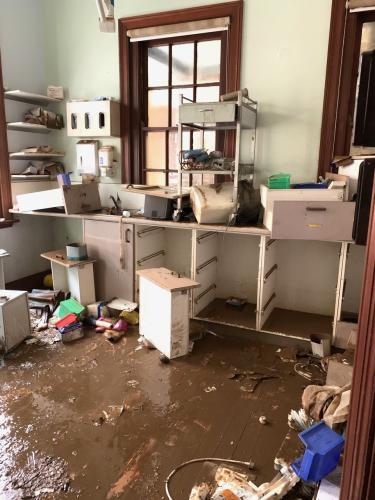Governments failing to help natural disaster victims access health care, AMA says
Following flooding in Central West NSW and other states, the Australian Medical Association says state and territory governments are missing in action when it comes to supporting communities to access health care services following recent natural disasters.

In September, the AMA called for public and private health services in rural and regional areas to be declared essential services and offered immediate financial support and resources to rebuild damaged or destroyed health facilities and replace equipment.
AMA President Professor Steve Robson, who visited Lismore in September, said two-and-a-half months on there has been nothing from either the Federal or NSW Governments to assist healthcare providers in that region.
“It’s been a horrific year for communities impacted by flooding in several states across the country, and both governments’ abject failure to support the ongoing healthcare needs of residents following these events is disgraceful,” Professor Robson said.
“Ten months ago, residents in Lismore NSW were hit by the worst flooding the area has ever experienced. In September this year – seven months after the disaster – I was shocked to see many private healthcare services had received little to no funding from government and were still struggling to rebuild. Ten months on – and I’m appalled. The lack of response from governments is a kick in the guts to the hardworking healthcare professionals in this region.
“GPs, specialists, pharmacists, allied health professionals – all of whom provide vital care to the community – cannot offer the same service to residents because they lost thousands of dollars’ worth of medical equipment and millions in property damage.
“This means many traumatised residents in the Northern Rivers region are not getting the healthcare that they desperately need at this time.
“Floods are currently predicted to hit communities in South Australia’s Riverina region, while only a few short weeks ago it was areas in Central West NSW. If Lismore is the template for these regions, then many more rural and regional residents in Australia can expect to be affected by limited healthcare services.
“Federal and state and territory governments must come together and act immediately to declare all rural health service providers as essential and provide immediate grant funding to ensure continuity of healthcare isn’t disrupted for rural and regional residents.
“People need surety that following a disaster they will be able to access their doctor for vaccinations, receive ongoing care for chronic conditions, or get prescriptions for life-saving medicine,” Prof Robson said.
Interruptions to ongoing healthcare for diverse members of the community including Aboriginal and Torres Strait Islander peoples, people living with a disability, disadvantaged socio-economic groups, the elderly, and culturally and linguistically diverse groups can have serious health consequences.
Rural communities already face poorer access to healthcare services compared to metropolitan areas. These regions have been hardest hit by GP shortages and typically must travel long distances to access specialist care.
“Town after town is being destroyed and rural communities traumatised, but where is the support for healthcare providers who are trying to continue providing care despite the loss of critical infrastructure and the ongoing threat to their long term viability?” Prof Robson said.



